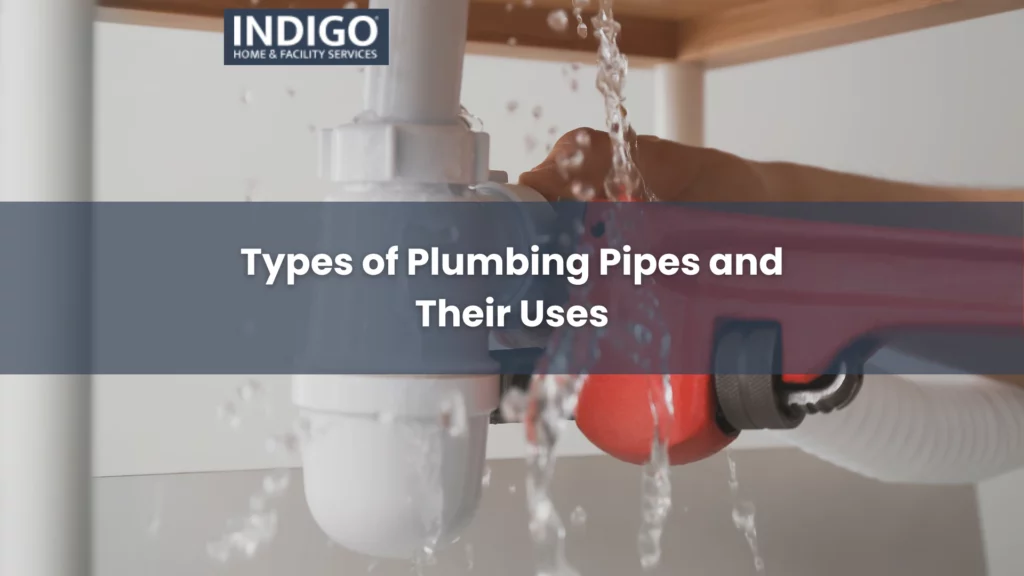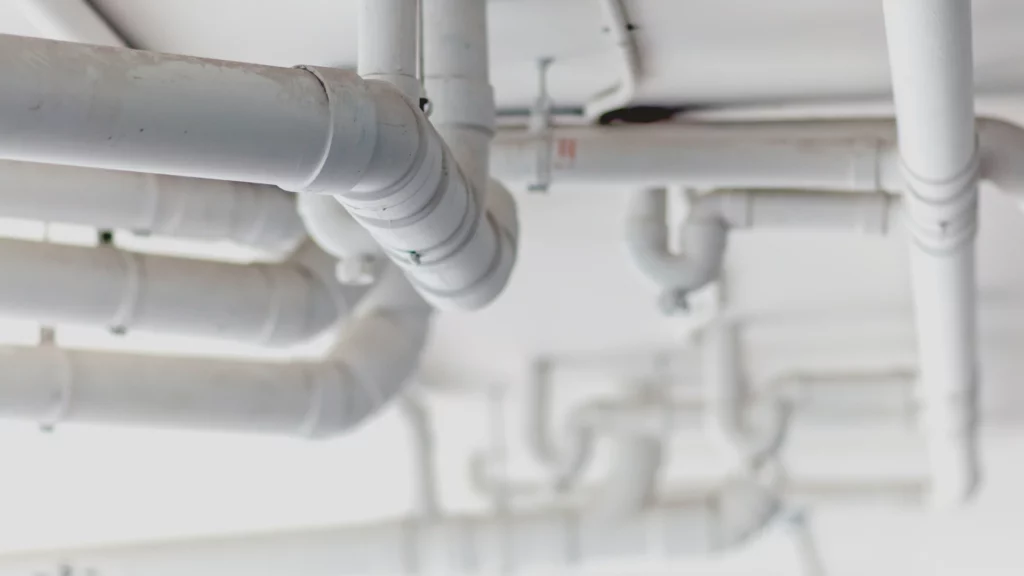
Choosing the right pipes for your property is essential to ensuring a reliable, efficient, and durable plumbing system. When selecting the appropriate plumbing pipes, you must consider various factors, such as cost, longevity, and your specific needs. It is important to know the different types of plumbing pipes, their uses, and the pros and cons of each material.
Overview of Common Plumbing Pipe Materials
Plumbers use several common materials in different types of plumbing pipes, each with unique characteristics and applications. Here, we will provide a brief overview of four popular plumbing pipe materials.
- Copper
- PEX (Cross-linked Polyethylene)
- PVC (Polyvinyl Chloride)
- Steel
Copper Pipes
Copper pipes have been popular for plumbing systems for many years, thanks to their durability and versatility. Plumbers commonly use them for water supply lines because they resist corrosion and handle hot and cold temperatures. They also use them in refrigerant lines for HVAC systems.
- Pros – They’re known for their durability, longevity, and corrosion resistance. They are also a more eco-friendly option, as you can recycle them.
- Cons – The primary downside of copper pipes is their higher cost than other materials. They can also be prone to pinhole leaks with exposure to acidic water.
Although copper pipes are generally more expensive than other materials, they often last 50 years or more.
PEX Pipes
PEX pipes, or cross-linked polyethylene pipes, have gained popularity in recent years due to their flexibility and ease of installation. Plumbers commonly use PEX pipes for water supply lines, particularly in residential properties. They are suitable for hot and cold water supply and use in radiant heating systems.
- Pros – PEX pipes are flexible, making them easy to install and less prone to leaks. They are also more affordable than copper pipes and resistant to corrosion and freezing.
- Cons – You cannot use them outdoors due to their sensitivity to UV light, which can cause them to degrade over time. They are also not recyclable and may not be compatible with some fittings and fixtures.
PEX pipes are generally more affordable than copper pipes and offer a similar lifespan, with an expected service life of 40-50 years.
PVC Pipes
PVC pipes, or polyvinyl chloride pipes, are a popular choice for various plumbing applications due to their affordability and ease of use. They are primarily used for drain, waste, and vent systems (DWV), as well as irrigation systems and cold water supply lines.
- Pros – They are lightweight, easy to install, and corrosion-resistant. They are also more affordable than copper and PEX pipes.
- Cons – These are unsuitable for hot water supply lines since they can warp or soften under high temperatures. They are also less durable than copper or PEX pipes and can become brittle.
PVC pipes are an affordable type of plumbing pipes, but their lifespan may be shorter than that of copper or PEX pipes, typically lasting around 25-40 years.
Steel Pipes
Steel pipes, once a popular choice for plumbing systems, have become less common in recent years due to the rise of other materials. However, they still have use in some applications. Steel pipes are often used for gas lines, as they can withstand high pressure. Plumbers may also use them as water supply lines in older homes and commercial buildings.
- Pros – Steel pipes are strong and durable, with high resistance to pressure. They can also be used for both hot and cold water supply lines.
- Cons – They are susceptible to corrosion, leading to leaks and reduced water quality. They are also heavier and more challenging to install compared to other materials.
Steel pipes are more expensive than PVC pipes but less expensive than copper pipes. Their lifespan can vary depending on the level of corrosion, but they generally last between 20-50 years.
How to Choose the Right Type of Plumbing Pipes for Your Property

Selecting the appropriate types of plumbing pipes for your property involves considering cost, durability, longevity, and your specific needs. It is essential to consult with a professional plumber who can assess your property’s requirements and recommend the most suitable material for your plumbing system.
Contact a Central Texas Plumbing Expert
Understanding the various types of plumbing pipes and their uses is crucial for making informed decisions about your property’s plumbing system. Each material has its advantages and disadvantages, making it essential to weigh your options carefully and seek professional guidance for optimal results. Trust the team of pipe installation and repair experts at Indigo Home & Facility Services to help you choose the right pipes for your property and ensure a reliable, efficient, and durable plumbing system. Call us at 512-608-4999 or contact us online to learn more.
Related Reading: